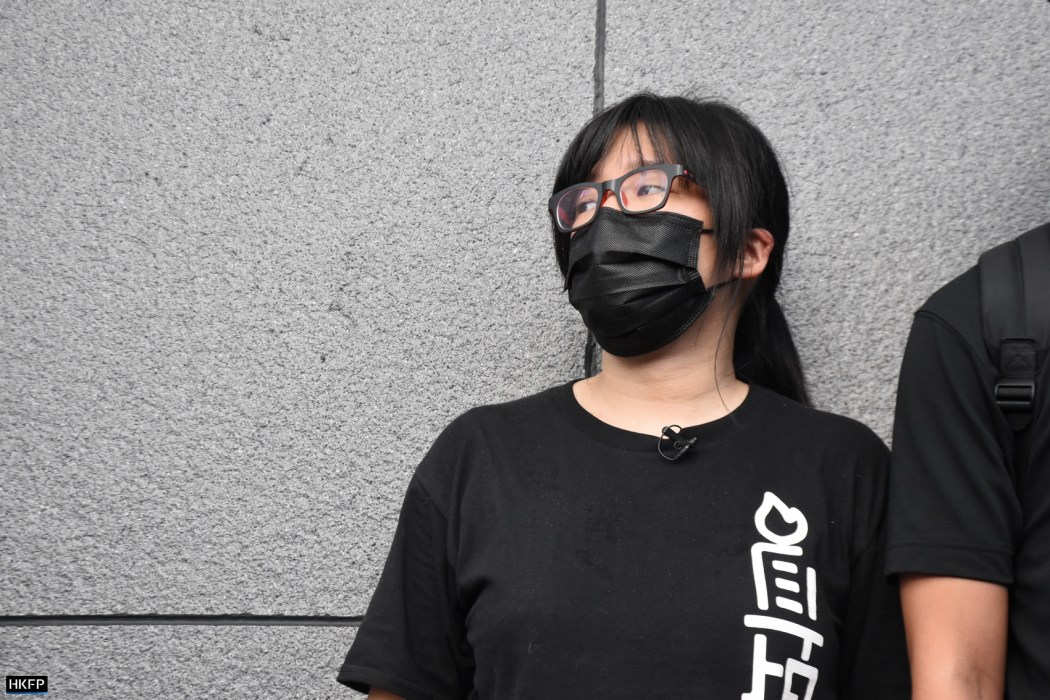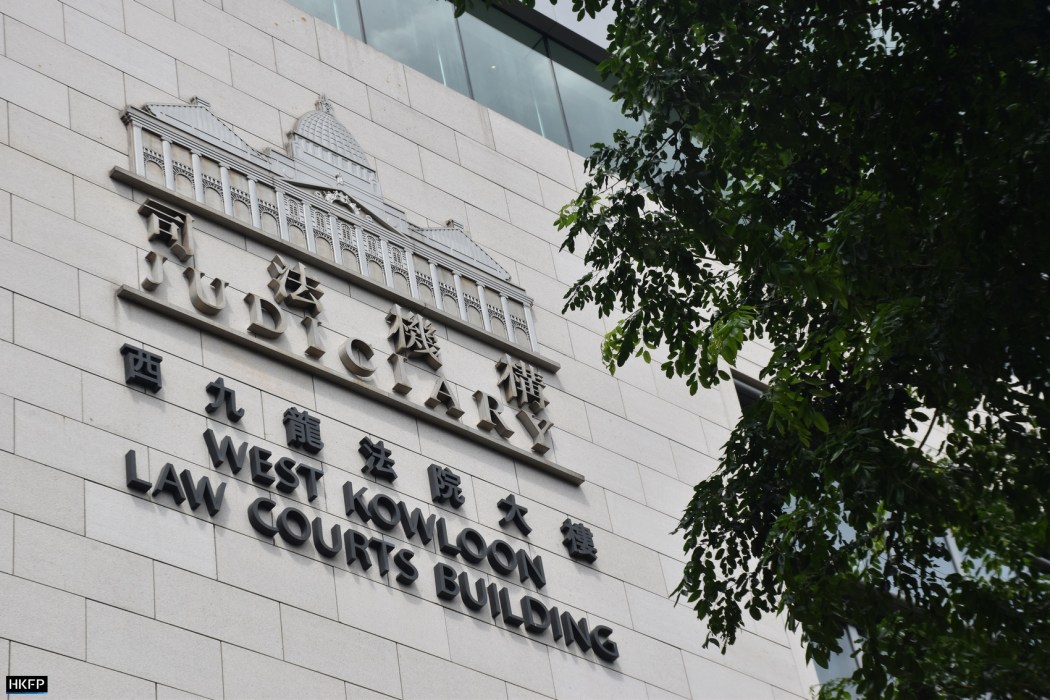A former leader of the group that organised Hong Kong’s annual Tiananmen candlelight vigils has launched a legal bid against a magistrate’s decision not to lift reporting restrictions for a national security case.
Chow Hang-tung, barrister and former vice-chairperson of the Hong Kong Alliance in Support of Patriotic Democratic Movements of China, handed in an application to file a judicial review on Monday.

The application was made against the decision of Principal Magistrate Peter Law, who is also a hand-picked national security judge, not to lift reporting restrictions on committal proceedings for the Alliance’s national security case.
Reporting restrictions surrounding committal proceedings – whereby a magistrate determines whether there is enough evidence for case to be transferred to the Court of First Instance of the High Court for trial or sentence – mean that written and broadcast reports are limited to including only the name of the defendants, magistrates, and lawyers, the alleged offence, the court’s decision, whether legal aid was granted, and future court dates.
According to the application, Law denied Chow’s application to lift reporting restrictions on committal proceedings on April 25. The principal magistrate ruled that the court had discretion to reject such applications.
Law also said that if restrictions were lifted, it would lead to “widespread critical discussion or even attack” of the case because the whole proceedings could be reported.
“Further, due to the disruptive behaviour of the public, the lifting of reporting restrictions will give immense mental pressure or even fear to potential witnesses. This is damaging to a fair trial,” Law said, according to the application.

The principal magistrate also ruled that “no prejudice will be caused to the defence” if reporting restrictions remained in place, as those who wished to help the defence would “already know about the case” as it had been “widely reported.”
Judicial reviews are considered by the Court of First Instance and examine the decision-making processes of administrative bodies. Issues under review must be shown to affect the wider public interest.
Open justice
In the application, Chow argued that Law “mistakenly relied on a discretion that he does not have” under section 87A of the Magistrates Ordinance.
Chow argued that the language of the section was “plain,” that “upon application by any defendant, the court is obliged to lift the reporting restrictions,” and that “there is no discretion to refuse.”
“Nor can the Prosecution oppose what is essentially, a defendant’s right to choose publicity over secrecy,” the application read.
The barrister also said that the magistrate had subverted or overlooked the principles of open justice.
“In treating a ban on reporting as the ‘primary principle,’ and in [effect] requiring the defendant to give reasons to justify wishing for unrestricted reporting, the Principal Magistrate subverted the fundamental principle of open justice, turning the right to a public trial into a privilege,” the application read.
Chow also said that Law took into account “irrelevant considerations” and ignored those that were relevant, including the impartiality of potential jurors.

“The risk of intimidating potential witnesses is neither real, nor linked to whether reporting restrictions are lifted or not,” Chow said in the application.
“More detrimentally, the Principal Magistrate gave no consideration at all of the importance of maintaining public confidence in the administration of justice, both locally and internationally,” the application continued.
“It is precisely when a case has attracted widespread attention that the court should be doubly careful to ensure that justice is seen to be done. Banning reporting because of public interest would only fuel distrust and suspicion.”
Committal proceedings adjourned
Chow – along with the Alliance and two other former leaders Lee Cheuk-yan and Albert Ho – were charged under the Beijing-imposed national security law over alleged incitement to subversion.
The group appeared in front of Law at the West Kowloon Magistrates’ Courts on Tuesday, as the court was scheduled to transfer the case to the Court of First Instance, where the maximum penalty for incitement to subversion is ten years imprisonment.

As Chow stepped out of the dock, she shouted “never forget June 4th, resist to the end.” The city will see the first anniversary of the Tiananmen crackdown without the Alliance on Saturday.
A man sitting in the public gallery shouted “vindicate June 4th.” Lee and Ho waved to the public gallery as they stepped into the dock before Chow.
The transferral of the case to the High Court was eventually adjourned to June 24.
The Alliance was a key player in Hong Kong civil society before its disbandment in September last year.
The group held annual candlelight vigils commemorating victims of the Tiananmen crackdown, where it was estimated that hundreds, perhaps thousands, died when the People’s Liberation Army cracked down on protesters in Beijing on June 4, 1989, ending months of student-led demonstrations in China.
Support HKFP | Policies & Ethics | Error/typo? | Contact Us | Newsletter | Transparency & Annual Report | Apps
Help safeguard press freedom & keep HKFP free for all readers by supporting our team
























